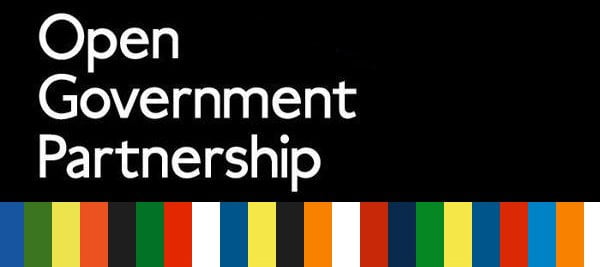On August 21, 2014, civil society representatives from Jakarta and Central Kalimantan held an audience with the Governor of Central Kalimantan, represented by Assistant II of Regional Secretariat of the Central Kalimantan Provincial Government, Syahrin Daulat. This civil society group met with Syahrin Daulat, who is in charge of PPID.
The meeting was attended by civil society representatives; Executive Director of JARI KalTeng, Mariyati; Researcher from SekNas FITRA, Lukman Hakim; Researcher from ICEL, and Open Government Specialist from PATTIRO, Nanda Sihombing. Representatives from the central government attended the Assistant Head of UKP4, Karina Kusumawardani, along with the deputy head of UKP4, Koni, who oversees the OneMap program in Central Kalimantan.
The discussion topics revolved around 4 topics which were the results of the Civil Society for Open Governance workshop in Central Indonesia. These topics were discussed in the discussion of customary territory maps (RTRWP), Regency/City PPID, Permit Access, and Audience Mechanisms of civil society and provincial government.
Indigenous Area Map (RTRWP)
During the discussion on the map of customary territories, it was conveyed that the current problem in Central Kalimantan was that there was already a government regulation that encouraged the RTRW to accommodate customary territories, but the government had not officially recognized this accommodation. Verification needs to be held for customary territories that have been mapped by civil society so that they can be integrated with land acquisition decisions by the central government and the policies of the respective district/city governments concerned. UKP4 said that the OneMap program had initiated an initiative in South Barito to verify this customary territory. The hope for the future is that the verification that has been carried out in South Barito can end well and can be replicated in other regions.
Regency/City PPID
In the discussion of the PPID issue in Central Kalimantan, the topic was raised that the Main PPID of Central Kalimantan province is currently in a somewhat less strategic situation because it had just been transferred from the Diskominfo to the Public Relations and Protocol Bureau, SetDa. So far, the service system has not been formed, PPID SOPs still need to be adjusted to the new structure.
The existing budgeting at Diskominfo cannot be used and the budget at the Public Relations Bureau still does not exist. It is hoped that the PPID SOP under the public relations bureau can be issued soon and Syahrin Daulat said he will accelerate the preparation of SOPs by taking advantage of the accelerated bureaucracy with the Governor.
Access Permissions
The problem with access to permits that was discovered during the civil society workshop was the existence of different databases between agencies (eg Dishub, Distamben, Dinas Perkebunan, Badan Pertanahan). Civil society’s hope is that at a minimum transparency of databases by each agency can be opened and from there a solution can be considered. The same.
Mechanism of 2 monthly hearings
In the Open Government Indonesia movement, civil society and the government sit together every two months with what is known as the OGI Core Team. One of the meetings was to discuss the latest developments from both parties related to transparency. It is felt that there are still gaps that could be improved in this national process, however this is an initial step that can be replicated at the provincial level for dialogue between government and civil society. JARI Kalteng will follow up on this meeting and inform other civil society developments regarding the development of openness in Central Kalimantan.






